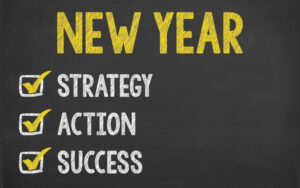
Why Emotional Intelligence (EQ) Matters More Than Ever
If the early 2000s were all about hard skills and technical expertise, 2025 is all about EQ—emotional intelligence—and soft skills. Research shows that employees with strong emotional intelligence not only work better with others but are 20% more productive than those who rely solely on technical expertise.
EQ is the ability to recognize, understand, and regulate emotions—both your own and those of others. It’s not just about being “nice” or “empathetic”; it’s a measurable skill that influences teamwork, leadership, decision-making, and even innovation.
In an era where AI is automating repetitive tasks, human skills—like empathy, resilience, adaptability, and communication—are the real differentiators.

What Exactly Counts as Soft Skills?
When we talk about soft skills, people often roll their eyes. “You mean being polite?” No. Soft skills are core human abilities that make or break careers and personal lives.
Key examples include:
Communication & Listening – not just talking, but really hearing.
Empathy & Compassion – understanding perspectives outside your own.
Adaptability & Resilience – thriving in uncertainty.
Collaboration – building trust and working seamlessly with teams.
Leadership & Influence – guiding people without coercion.
Critical Thinking & Problem Solving – beyond facts, toward human-centered solutions.
In other words: soft skills are not optional. They are the hardest skills to automate, and therefore the ones that matter most.
Emotional Intelligence in the Workplace
A recent Teammeter report shows that companies actively training employees in EQ see:
30% fewer conflicts at work
40% improvement in collaboration
higher employee retention
In leadership, EQ is even more critical. According to studies, 90% of top-performing leaders score high on emotional intelligence, while only 20% of low performers do.
It’s simple: if you can’t manage your own stress, how can you inspire a team? If you can’t read the room, how can you sell an idea?

You may also enjoy our article on:
Digital Detox: Reclaiming Your Focus in Work & Life
Together, digital detox and EQ development create a powerful synergy—more clarity, less stress, and stronger human connections.
Read articlePractical Ways to Build EQ & Soft Skills
The good news? EQ can be trained. It’s like a muscle—you need to exercise it daily.
Here are proven strategies:
1. Start with Self-Awareness
Keep a daily journal of emotions, reactions, and triggers. Tools like The Five Minute Journal on Amazon help you reflect without overwhelming you.
2. Practice Active Listening
When someone talks, don’t prepare your answer—just listen. A simple trick: summarize what the other person said before responding.
3. Build Empathy Through Micro-Acts
Spend 10 minutes a day seeing the world from someone else’s shoes. It can be as small as asking a coworker about their weekend and really paying attention.
4. Learn to Pause Before Reacting
EQ is often about controlling impulses. Count to three before replying in a heated moment. It’s basic, but life-changing.
5. Train Adaptability with Small Experiments
Try new routines, new tools, or even new workouts. Adaptability in small things prepares your brain for bigger changes.

The Personal Side of EQ
EQ isn’t just about work. In private life, it affects:
Relationships – better conflict resolution and deeper bonds.
Parenting – teaching kids emotional regulation by modeling it yourself.
Stress Management – recognizing when you’re at a breaking point before you crash.
Imagine this: instead of snapping at your partner after a long day, you notice your tension, pause, and choose a calm response. That’s EQ in action.
Tools & Books to Develop EQ
If you want to dive deeper, here are practical tools and books available on Amazon:
Emotional Intelligence 2.0 – Buy now on Amazon
The EQ Edge: Emotional Intelligence and Your Success – Buy now on Amazon
Crucial Conversations: Tools for Talking When Stakes Are High – Buy now on Amazon
These resources give not only theory but exercises and assessments to actually build EQ step by step.
Final Thoughts
In a world racing toward automation, EQ and soft skills are the future-proof skills that will set you apart. Whether you’re leading a team, navigating relationships, or just trying to stay sane in a chaotic world, emotional intelligence is your edge.
We’d love to hear from you!
👉 Have you ever tried training your emotional intelligence?
👉 Do you believe EQ is more important than hard skills in your career?
Drop your thoughts in the comments below—and let us know which productivity or self-development topics you’d like us to cover next on Smarter Better Daily.






